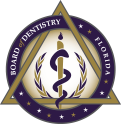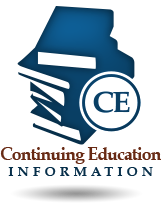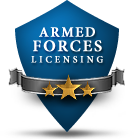HB 713 - Department of Health
Effective Date: July 1, 2020
HB 713 (Full Text)
Summary:
The bill amends numerous practice acts to streamline regulation and increase efficiency. The bill makes numerous updates and changes to programs and health care professions regulated under the boards and Department of Health (DOH):
- The bill grants rulemaking authority to DOH for responsibilities relating to maximizing the use of existing programs and coordinating stakeholders and resources to develop a state strategic plan, including the process of selecting physicians under the Conrad 30 Waiver Program, and to encourage qualified physicians to relocate to Florida and practice in medically underserved and rural areas;
- Requires an applicant for a health care professional license to provide his or her date of birth on the application;
- Revises the DOH’s health care practitioner licensing provisions to permit the DOH to issue a temporary license, that expires in 60 days instead of 30 days, to a non-resident or non-citizen physician who has accepted a residency, internship, or fellowship in Florida and has not yet received a social security number;
- Creates an exception to the 15-percent cap for self-referral for diagnostic imaging services normally imposed on solo or group practice settings for group practice entities that own an accountable care organization or an entity operating under an advanced alternative payment model, according to federal regulations, if such entity provides diagnostic imaging services and has more than 30,000 patients enrolled per year;
- Repeals a health care practitioner’s failure to repay student loans as grounds for discipline by the DOH;
- Authorizes the DOH to issue medical faculty certificates to certain full-time faculty members of Nova Southeastern University and Lake Erie College of Osteopathic Medicine;
- Repeals the requirement that the Board of Medicine (BOM) conduct a triennial review of organizations that board-certify physicians in dermatology;
- Revises the composition of the Council on Physician Assistants, under the BOM, from four physicians and one physician assistant, to two physicians and three physician assistants;
- Revises the requirements for osteopathic internships and residencies to include those accredited by the Accreditation Council for Graduate Medical Education;
- Deregulates registered chiropractic assistants;
- Effective upon the bill becoming a law, allows a nursing education program seeking accreditation to apply to the Board of Nursing (BON) for a single extension of not more than two years if the program meets specific criteria and grants the BON rulemaking authority on criteria to qualify for the extension;
- Grants rulemaking authority to the BON to establish standards of practice, including discipline, for certified nursing assistants (CNA);
- Recognizes CNA certification in a U.S. territory or the District of Columbia for certification in Florida and eliminates the element of intent for violations of the practice act by CNAs;
- Defines the supplemental general dentistry education required for dental licensure applicants who have not graduated from a dental school accredited by the American Dental Association Commission on Dental Accreditation to exclude education in an advanced dental specialty;
- Repeals the requirement that dental and dental hygienist licensure examinations must be graded by Florida-licensed dentists and dental hygienists;
- Effective upon the bill becoming a law and applying retroactively to January 1, 2020, revives, reenacts, and amends statutory provisions relating to health access dental licenses, notwithstanding their sunset on January 1, 2020;
- Requires dentists and dental hygienists to report adverse incidents to the Board of Dentistry (BOD) and gives the BOD rulemaking authority;
- Authorizes an employee or independent contractor of a dental laboratory to engage in onsite consultation with a licensed dentist during a dental procedure and requires a dental laboratory to be inspected at least biennially;
- Requires an athletic trainer to work within his or her scope of practice as defined by the Board of Athletic Training and revises the educational and internship requirements for licensure;
- Requires the DOH to issue a single prosthetist-orthotist license to qualified applicants and establishes the educational requirements for duel registration;
- Revises massage therapy licensure requirements to:
- Repeal Board of Massage Therapy (BMT) departmental examinations and require a BMT-specified national examination;
- Eliminate massage apprenticeships as a path to licensure by 2023; and
- Revise the definition of a massage therapy “apprentice” to include only those persons approved by the BMT to study colonic irrigation under a licensed massage therapist;
- Updates the name of the accreditation body for psychology programs and revises the requirements for psychology licensure;
- Limits the Board of Clinical Social Work, Marriage and Family Therapists, and Mental Health Counseling to the issuance of only one additional internship registration;
- Revises the education, clinical, and licensure requirements for marriage and family therapists and licensed mental health counselors, including updating the program accrediting agencies.
HB 743 - Nonopioid Alternatives
Effective Date: July 1, 2020
HB 743 (Full Text)
Summary:
The bill revises the requirements for certain health care practitioners providing an opioid drug listed as a Schedule II controlled substance to inform the patient about possible nonopioid alternatives, discuss the advantages and disadvantages of nonopioid alternatives, and provide the pamphlet as required in section 456.44, Florida Statutes by:
- Requiring that the pamphlet provided to the patient be printed;
- Authorizing a health care practitioner to discuss non-opioid alternatives with, and provide the pamphlet to, the patient’s representative rather than the patient;
- Specifying that only those health care practitioners ordering or prescribing or providing care that requires the administration of anesthesia using an opioid must meet the requirements and removing the requirement to address non-opioid alternatives when a drug is dispensed or administered; and
- Exempting health care practitioners providing hospice services and providing care in a hospital critical care unit or emergency department from the requirement to discuss non-opioid alternatives with a patient or the patient’s representative and provide a printed copy of the pamphlet.
Click here for more information and access to the pamphlet.
1461: Health Access Dental Licenses
Effective Date: Upon becoming a law
HB 1461 (Full Text)
Summary:
This bill reestablishes the licensure, renewal, and revocation of health access dental licenses.
115: Keep Our Graduates Working Act
Effective Date: July 1, 2020
HB 115 (Full Text)
Summary:
The bill prohibits the Department of Health (DOH) from denying the issuance of, refusing to renew, suspending, or revoking a professional license based solely on the licensee being delinquent on a payment of or defaulting on his or her student loans. The bill removes the specific provision allowing DOH to discipline a health care practitioner for failing to repay a student loan and the associated mandatory discipline. The bill repeals the requirement that DOH must issue an emergency order suspending a health care practitioner’s license for a student loan default, absent timely proof of a new repayment plan. Additionally, the bill repeals the requirement that DOH must obtain a monthly list from the United States Health and Human Services (USHHS) of the health care practitioners who have defaulted on their student loans.





